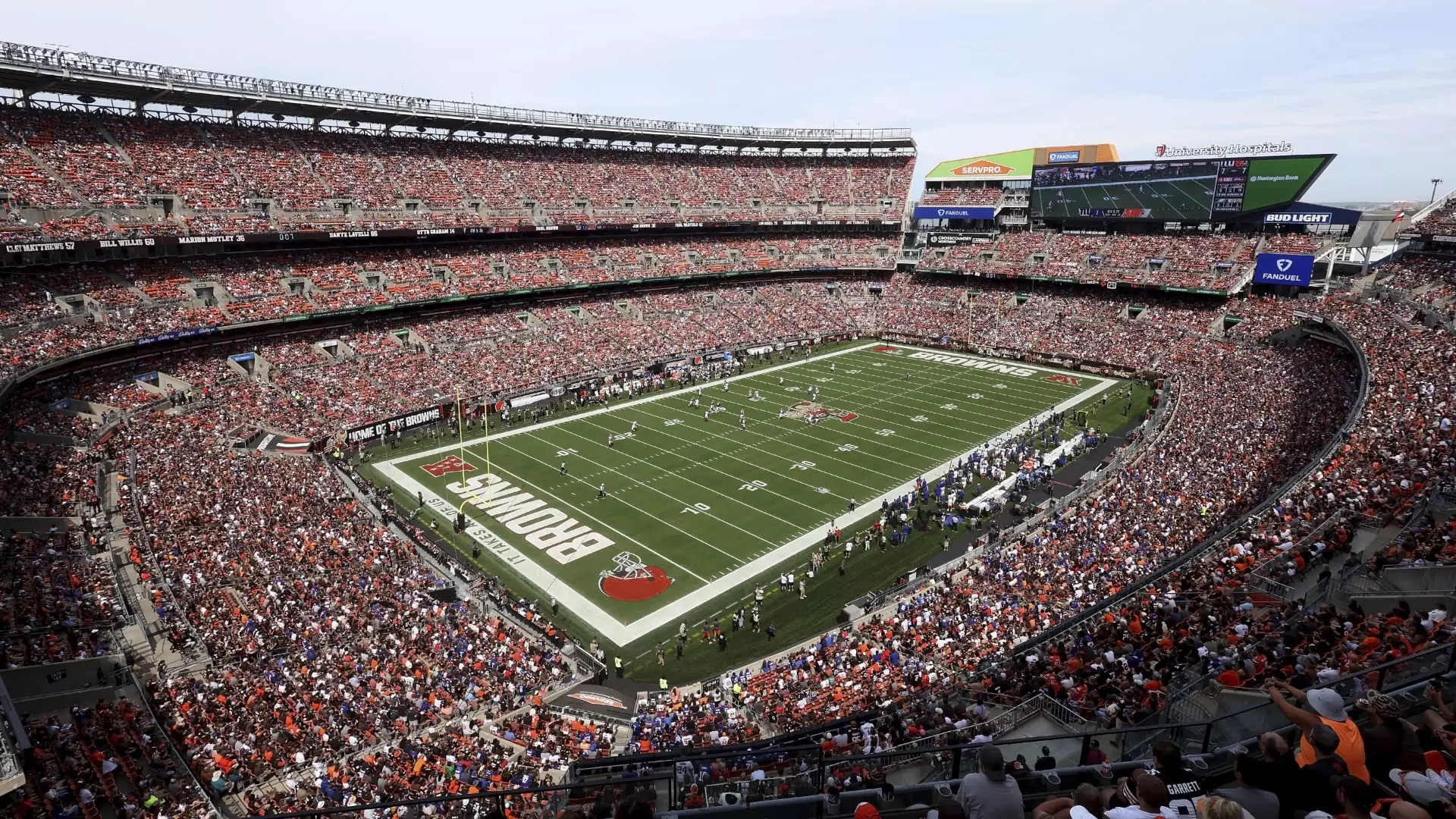The news of the Cleveland Browns’ impending relocation from downtown Cleveland to a new domed stadium in Brook Park has stirred substantial controversy and disappointment among fans and city officials. As the team ushers in this change, the implications of their departure resonate deeply within the community, both in terms of emotional attachment and economic impact.
In a shocking announcement made on Thursday, Cleveland Mayor Justin Bibb publicly expressed his discontent with the Browns’ owners, Jimmy and Dee Haslam, labeling their decision as a pursuit of profit over positive local engagement. This critique underscores a broader tension that has historically existed between sports franchises and the cities that nurture them. Bibb’s statement emphasized that the Haslams had neglected an opportunity to reinvest in their home city and revamp the existing stadium into a modern sports facility.
With the era of sports entertainment increasingly revolving around maximizing revenue, the Haslams defended their move by highlighting the need for a year-round setup that a domed stadium would provide. Significant focus has been placed on the economic viability of stadiums, which have become multifaceted venues catering not only to football but also to concerts and other events. The revenue generated from such activities has proven lucrative, as evidenced by reports of impressive figures from events like Taylor Swift’s Eras Tour, which brought in massive profits for some venues.
Mayor Bibb warned that the relocation of the Browns could translate into a staggering $30 million annual economic deficit for the city of Cleveland. This figure represents more than just lost sports revenue; it encapsulates the cultural void created by the absence of a major NFL franchise. The team serves as a unifying entity for the community, providing jobs, recreational opportunities, and a source of pride for fans. The departure of the Browns, which has been home to the city since its establishment in 1946, poses a significant blow to Cleveland’s identity.
The Haslams, however, maintain that the decision was made with the long-term financial health of the franchise and the city in mind. Their plans for Brook Park include a $2 billion private investment combined with public funds aimed at establishing a vibrant economic development project. The idea is to create a thriving environment that generates additional revenue streams capable of servicing public debts. Yet, skepticism looms as residents question whether the new venue will ultimately deliver on the promised economic benefits or simply act as an empty vessel for corporate profit.
While the Haslam Sports Group is firm in their commitment to go forward with the Brook Park project, Mayor Bibb has indicated that the city is still open to future discussions regarding the potential renovation of the existing stadium. This willingness reflects the city’s desire to maintain some form of leverage in an evolving landscape dominated by franchise economics. The city had proposed various options to preserve the Browns’ connection to Cleveland, which they deemed a collaborative effort towards the team’s success.
However, the clock is ticking, and as the Browns weigh their potential exits, the commitment of the Haslams to improving Cleveland, as they claimed in their public statements, remains to be proven. What’s clear is that sports teams wield considerable influence over their hometown economies, often dictating the terms of engagement and investment.
The heart of this situation rests upon the passionate and often reactive fan base of the Cleveland Browns. While some support the franchise’s need for modernization and financial sustainability, a significant faction feels betrayed, having cheered for the team through thick and thin. The deep-rooted connections fans have to the franchise often transcend mere economic considerations; they manifest as community pride and cultural identity.
The impending relocation of the Browns may serve as a bellwether for other cities experiencing similar pressures from their professional sports teams. As more franchises consider moves to generate greater profitability, it raises essential questions about the future relationships between cities, their teams, and the fans who support them. Will the pursuit of profits overshadow the dedication to local communities, or can a balance be achieved that satisfies all stakeholders involved? Only time will tell as the Cleveland Browns embark on this new phase, leaving a bittersweet chapter in their wake.


Leave a Reply